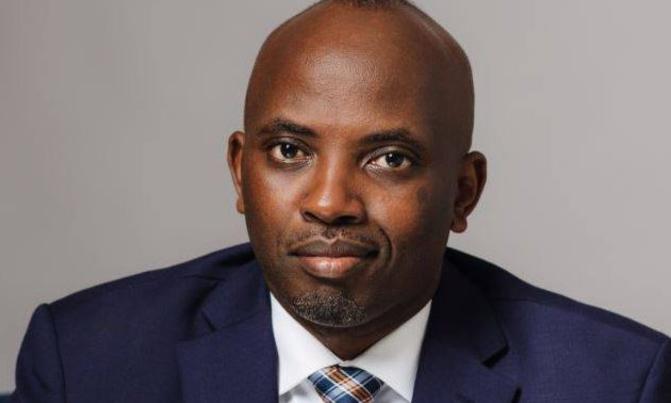Africa-Press – Uganda. Earlier this year, on the Teachers Desk, I shared with you my prophesy about teaching & learning in the post covid-19 era and this time I bring you what I think will likely be the fate of schools after the COVID-19 pandemic.
At this point we have all come to terms with the new normal that schools are closed, all children are home with their parents, some online and distance learning is happening where possible, there aren’t any examinations written and all this is happening as a result of the COVID-19 lockdown. What a strange a year for schools, teachers, students, parents and government! Some parents are working from home, others have sadly lost their jobs, government and teachers are creatively finding new ways of reaching students to still deliver content that supports learning and the children themselves are stuck inside without their friends. The good news is that so many people are responding heroically and somehow, we will get through this. But when we do, how will things look when schools re-open their doors for students?
To answer the above question for you, allow me to share with you some of the important things I have learned during this lockdown. As an Educationist, I chose to use this stay at home directive productively by reaching out to fellow Educationists and different Education Thought-Leaders from around world and among the many things we discussed I have consistently asked them to answer the question: How will things look when schools re-open their doors for students? After digesting and analysing their answers, I am delighted to share with you some of the most important and lasting issues and opportunities that we anticipate will surface once school starts again.
Students will need extra support
After weeks or months at home, students will have lost their teachers’ face-to-face support. Many young people will have experienced poverty, stressful and depressive episodes. They may have seen family members become ill, or worse and certainly they might have had little chance to play outside. Some may have witnessed domestic violence and other abuse behaviors.
Many children will have lost the habits that schools teach them — sitting in their rows and columns, raising their hands to answer a question, knowing how to listen and co-operate. More than a few will exhibit the signs of post-traumatic stress. Some will have spent hours looking at smartphones or playing video games. And the learning gaps will undoubtedly widen between children from poorer and better-off homes.
Although the ministry of education and sports may be anticipating such difficulty, schools will actually require extra resources. Counsellors, mental heath specialists and learning support teachers will be needed to help the weakest learners and vulnerable children settle down and catch up with their studies.
Making the well-being of students a priority
Well-being of students should no longer be reduced to a whim. It’s now clear that without their teachers’ care and support it will be hard for many students to stay well and focused. Being well isn’t an alternative to being successful. It’s an essential prerequisite for achievement, especially among our most vulnerable children.
Showing immense appreciation for teachers
Teachers are among the unsung heroes of COVID-19: preparing resources and guidance for distance learning, showing up on TV and Radio to deliver a lesson, connecting with kids and their parents to make sure they’re okay — even while many have kids of their own at home. Parents are fast coming to appreciate everything teachers do.
It’s hard enough when parents have more than one child at home all day now. Many will surely realize just how hard it must be to have a crowded class. Once the working world regains a degree of normality, we won’t take our essential workers for granted so much. Teachers will be among these.
Leveraging technology for education
During COVID-19, there’s been a mad scramble to find technology to support learning at home but at the same time majority of students don’t have internet access or digital devices at home. As money gets tighter, families on the edge of poverty may also have to choose between maintaining the internet service or putting food on the table.
Having experienced the perilous effects pandemics like COVID-19 can have on the education sector and also considering the need to embrace and fully participate in the Fourth Industrial Revolution (4IR), the government of Uganda need to plan and provide every child with the opportunity to access a personal device and an internet connection. This will not only stimulate schools to develop projects in which innovation and deeper learning for students is happening, it will also equip Ugandan learners to continue with their education even in periods of pandemics have caused lockdowns, school closures and stay-at-home directives.
If we lived in a world where Uganda had massively invested in providing opportunities for students to access personal devices and internet connection, in this pandemic, technology would have suitably supplemented teaching and teachers. Uganda needs to develop a coherent and comprehensive national approach to technology connectivity and learning that will support all schools.
Involving teachers in policymaking and planning
As the ministry of education and schools begin to think about how to safely bring students back to school. There is a mountain of logistical and pedagogical challenges to climb and overcome. Now is a good time to value teachers as professionals by involving them as partners in planning and decision-making. Our government through the ministry of education should give teachers the opportunity to be part of decision making, engagement about the direction of the school, which creates a lot of good will. More importantly, it also drives real change and continuous improvement. We are in the midst of great changes to teaching and learning with rapid continuous improvement requirements.
Who better than to guide and direct the change than teachers, the very professionals who know what is and isn’t working and what will and won’t be practical in the future?
Schools may need more robust virtual learning plans and in-depth professional development for teachers on remote teaching and learning. They must involve their teachers. Listen to them. They have the best ideas.
The writer is a Deputy Vice Chancellor of the Victoria University. He is also an Education Thought-Leader, award-winning best-selling author, international curriculum speaker, and passionate about changing the education factory we call school.
What is your view on this matter? Send your comments on [email protected] and we will have them published.






